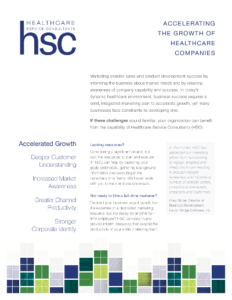
Email marketing is a highly effective method for distributing targeted content and developing personal connections with healthcare IT audiences.
In fact, research shows that 99% of consumers check their email daily. Most Baby Boomers, Gen Xers, and Millennials prefer to receive business communications by email (74%, 79%, and 78% respectively). And, product marketers have seen an increase in email engagement over the past 12 months.
But, the effectiveness of an email marketing effort is directly correlated to the quality of your email distribution list. This blog explores the key considerations and tactics for:
- building effective contact lists
- driving awareness
- generating leads
Pros and Cons of Purchasing an Email Database
Pre-packaged email lists are tempting. They provide organizations with the instant opportunity to access thousands of email contacts. Certainly, there is no shortage of companies offering such lists. These vendors promise highly targeted and accurate contacts encompassing healthcare executive, IT, clinical, and administrative professionals.
What can the investment in a purchased email list get you? What are the potential drawbacks?
Benefits
- Fast access to more contacts. The most obvious benefit of purchased lists is that they offer immediate access to a large group of contacts. It could take months, if not years, for healthcare IT organizations to organically build a list.
- Improved targeting. Purchasing a targeted list that only includes individuals with specific titles and roles streamlines campaigns. Messaging can be optimized for specific buyer personas.
- Reach new markets. Curated lists often include contacts from organizations outside your network. Or, not yet on your sales radar. Such a list offers potential access to new market segments that would otherwise be difficult to access.
Considerations
- Quality. The most important consideration is the quality of the contact information. For instance, does it contain the data needed for you to effectively target your key market segments? Does it include the appropriate decision makers and influencers? Is it accurate and up to date? Before cutting a check, it is important to ask for a demo or sample of the database. You deserve to see the volume and profiles of the contacts, as well as fields available for filtering.
- Deliverability. Ensuring deliverability requires that the list vendor diligently evaluates and grooms its lists. They should be up to date and accurate. Are deliverability rate guarantees achievable? Consider third-party services like Kickbox or Neverbounce to check and scrub email lists. You need to know for certain you’re reaching your target audience.
- Spam. Sending unsolicited emails to new contacts can be perceived as spam. If you’re purchasing an email list, be sure it’s from a reputable organization that uses legal and ethical methods to collect contacts. This could be a research firm, professional body, or consumer group. Email communications should provide informative and valuable content to reduce the likelihood it will be flagged as spam.
The Importance of Building a CRM Email Database
Whether or not you purchase an email list, there are other key strategies to implement. For example, it is important to build and maintain your own CRM database. Since it is assembled from contacts who have engaged with you in the past, or that your sales and marketing teams have directly researched and collected, data in your CRM is more accurate and valuable than any purchased list. This results in a higher quality—even if lower quantity—email list.
Building a CRM database needs to be an intentional effort tied to your other product marketing activities. For instance, email addresses can come from:
- trade show lists or badge scans
- website “contact us” forms
- gated content or landing page forms
- sales conversations and referrals
Be sure to arm your sales and marketing teams with the appropriate tools and processes to capture contact and profile information for each engagement and easily enter it into the CRM.
Remember to export contacts from your CRM to an email database on a regular cadence. We suggest quarterly, at a minimum, to keep it up to date and ensure your marketing efforts achieve the greatest reach. Continue to add new contacts as sales and marketing efforts progress. Nurture these potential leads with valuable and educational content.
Integrating Email into Your Marketing Strategy
Email marketing is an essential component to a well-rounded product marketing strategy. Using an email list that includes high-quality contact and profile information is crucial for enabling successful targeting and distribution of your marketing content.
Do you need help building an effective email distribution list and marketing campaign? Do you want to increase the reach and impact of your email marketing strategy? Our team of product marketing experts can assist in constructing and managing your CRM and email marketing database. Contact us to learn more.




